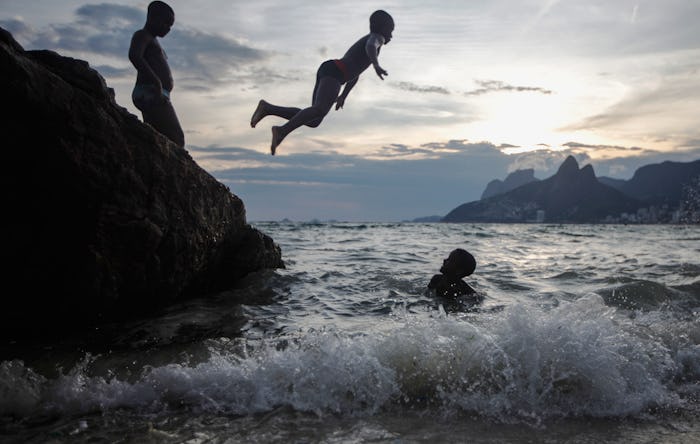Life

Zika Vacation Tips To Keep Your Family Safe When Traveling This Summer
With mounting headlines about the dangers of the Zika virus, people are wondering what they can do to protect themselves and their family from getting infected. Here are a few Zika vacation tips to keep your family safe when you're traveling this summer.
Summer is a high-risk time of year for Zika because warm weather means more mosquitoes, which is how you can contract Zika, in addition to sexual contact with someone who has the virus. So with Zika cases on the rise, and the weather creating prime conditions for its spread, it's important to know what you need to do to stay safe.
Pregnant women or women who might become pregnant are susceptible to the greatest risk if they contract Zika, since a devastating birth defect, microcephaly, is linked to contracting Zika virus while pregnant. The Centers for Disease Control recommends you contact your healthcare provider for more information and recommends strict precautions and monitoring of symptoms. Some countries hardest hit by Zika are encouraging women to delay getting pregnant to protect their unborn babies from Zika-related birth defects. How long will they have to wait? It's hard to say. There is so much that's still unknown about Zika and its long-term effects, and researchers are struggling to come up with good answers.
1. Avoid Zika Zones If You Can
With Zika epidemics flaring up across the Caribbean and South America, its likely many people's summer vacation plans could fall in a hot Zika zone. The Centers for Disease Control keeps an updated list of areas with Zika outbreaks. Brazil is a Zika zone and just weeks away from hosting the 2016 Summer Olympic Games in August, prompting fears of contraction in both spectators and competitors alike. British long jumper Greg Rutherford decided to freeze his sperm to prevent Zika and ensure he wouldn't have to delay family planning.
CBS reported that many health officials have submitted recommendations that the Olympics be moved, postponed, or canceled to prevent the wider spread of Zika, but that definitely won't happen at this point.
Besides having long-term consequences for pregnant women, there have also been cases where those infected with Zika experience paralysis and nerve damage, so its equally dangerous for adults as it is for fetuses in utero. What it comes down to is this: if you're concerned about getting the virus, just avoid Zika zones altogether if possible.
2. Mosquito Protection
If you find yourself in a Zika Zone, make sure you practice scrupulous mosquito protection. The CDC says to use insect repellent, wear long pants and sleeves to cover your skin so mosquitoes can't bite you, and sleep in closed rooms with air conditioning or use a bug net. It's also important to use latex condoms during sex to prevent the transmission of Zika.
3. Mosquito Prevention
If you live in an area with Zika or travel to one, make sure you avoid or eliminate areas with standing water, which is where mosquitoes breed. That includes standing pools, puddles, ponds, and even rain collected in gutters. If you find yourself in areas with recent flooding, like Texas, where conditions are prime for mosquitoes and Zika has been detected, it's important to be especially cautious.
4. Stop The Spread Of Zika
The symptoms of Zika virus, according to the CDC, include a fever, rash, joint pain, and red eyes. If you suspect you have Zika, get to the doctor for a diagnosis. Once you return from a Zika zone the CDC asks that you use insect repellent for at least three weeks in case you've been infected, to keep mosquitoes from biting you, then someone else, and spreading the disease. It's also important to use condoms during sex to prevent the spread for a few weeks after returning from an area with a known Zika outbreak.